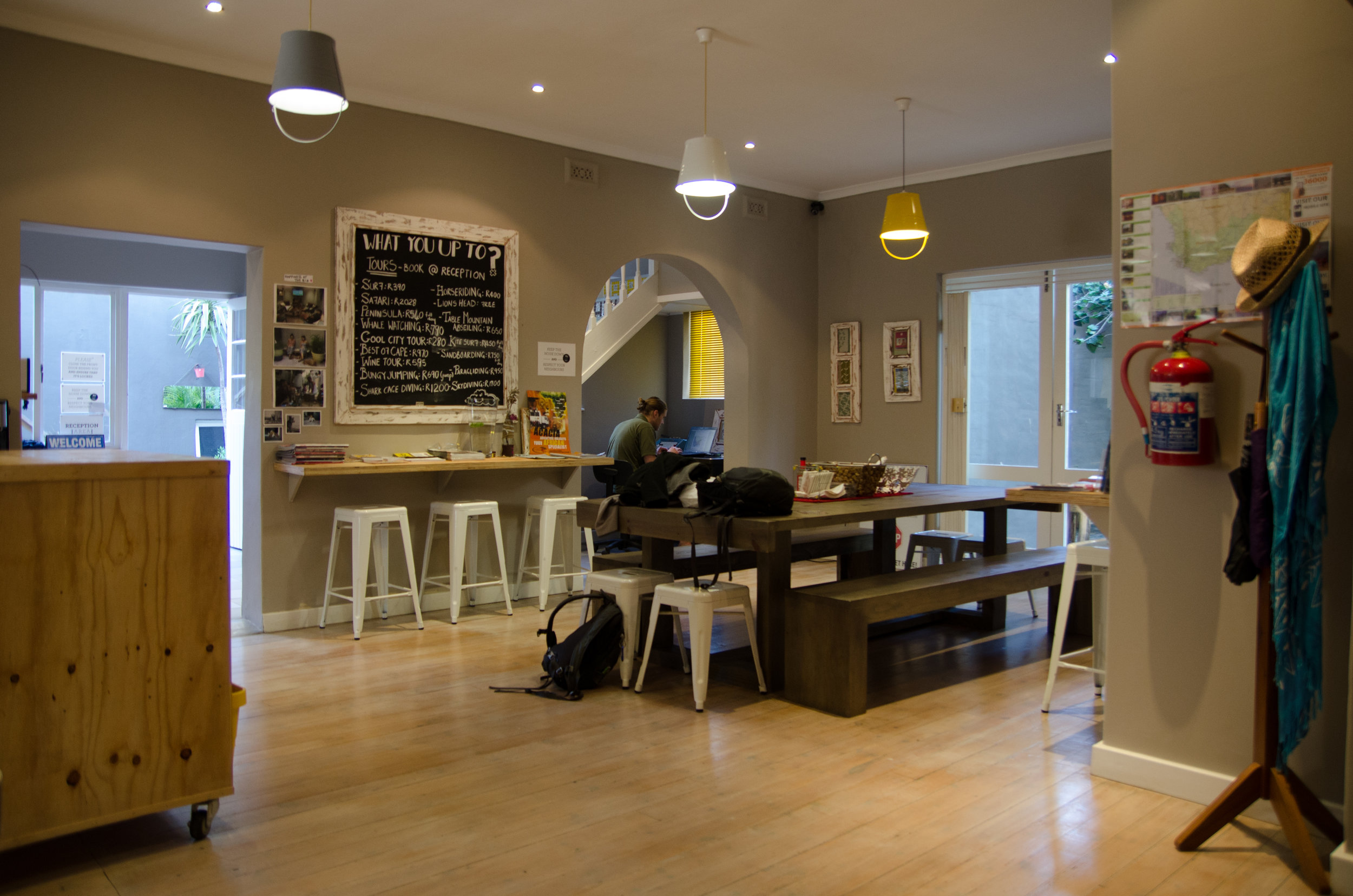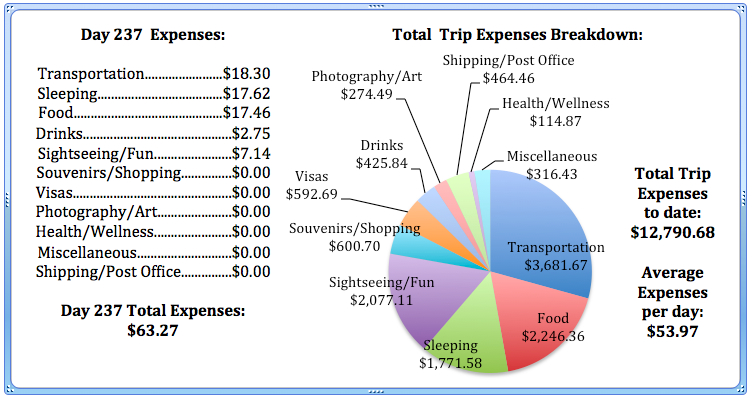Our friend Hanfred put us in touch with his sister, who currently lives in Cape Town. We arranged to have brunch with her in the morning (again feeling so spoiled knowing friends or friends and family of friends around the world). Ilze was so wonderful to meet and graciously fielded our questions about South Africa while we tried to fill her in on life was (is?) like in South Korea. She said it helped her understand/know more of her brother’s life in South Korea and we all exchanged hugs and love before we parted ways downtown to check out Green Market Square before jumping back on the Cape Town hop on – hop off bus tour to jump off at the Imizamo Yetho Township.
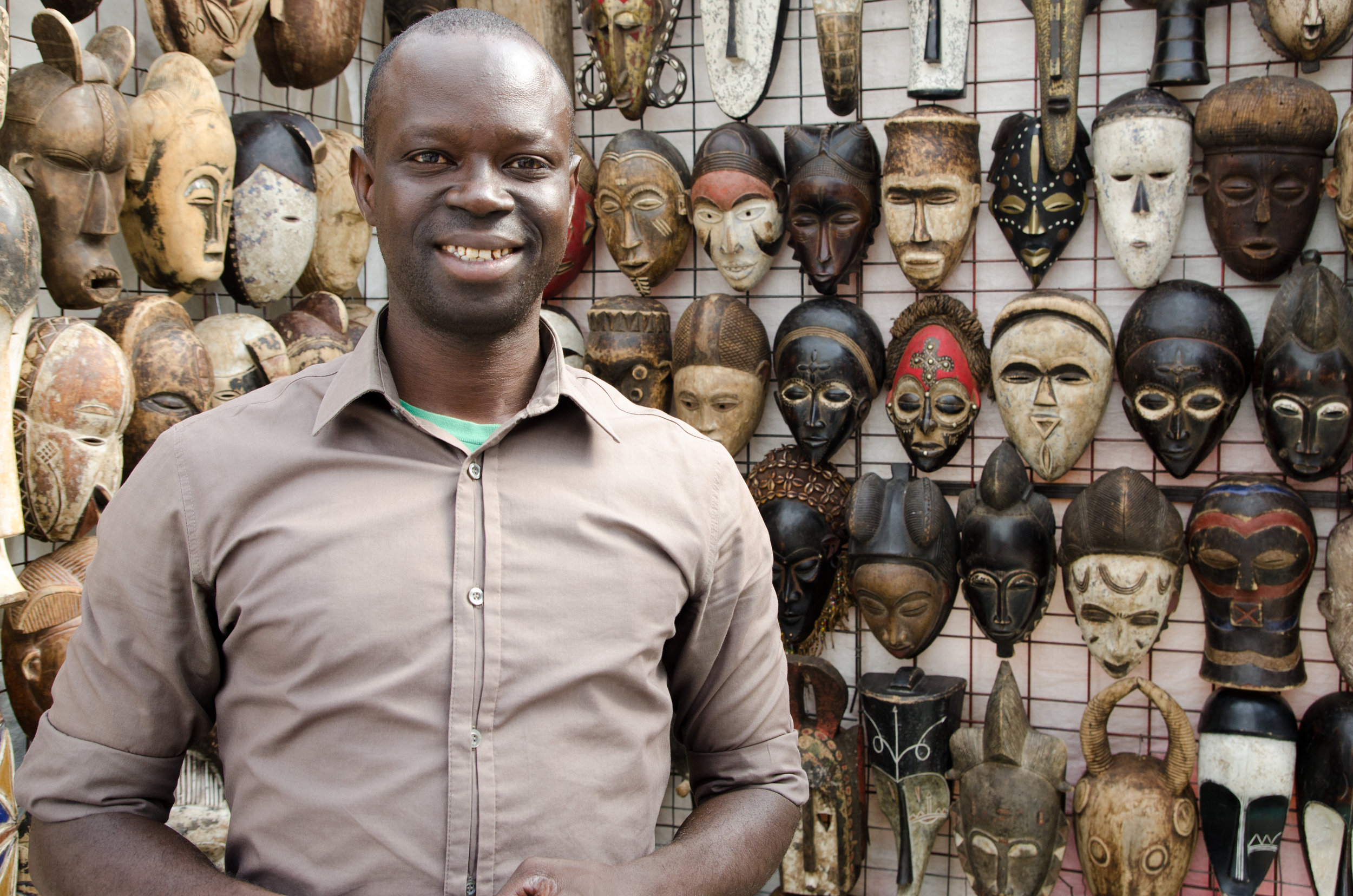
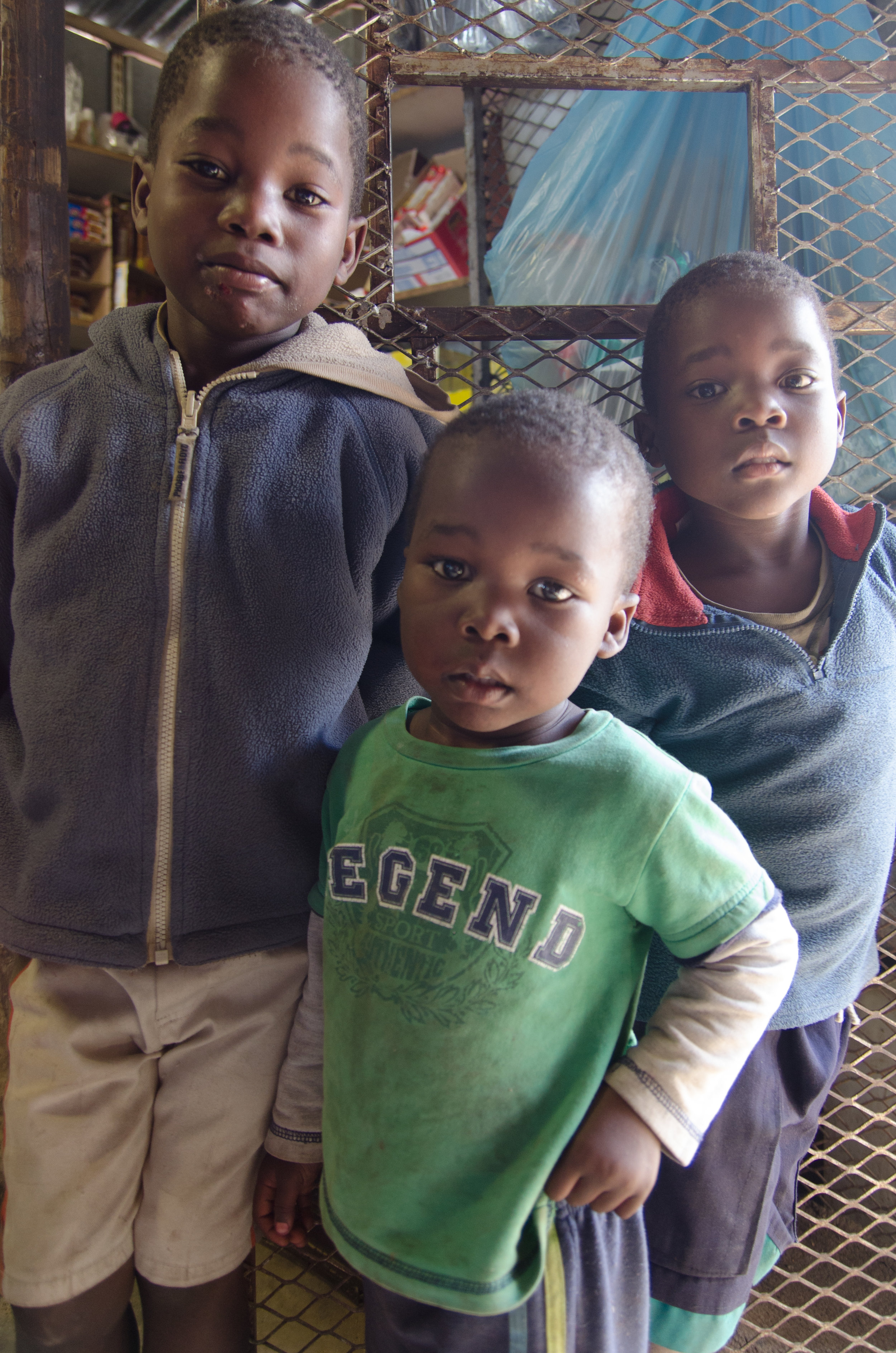



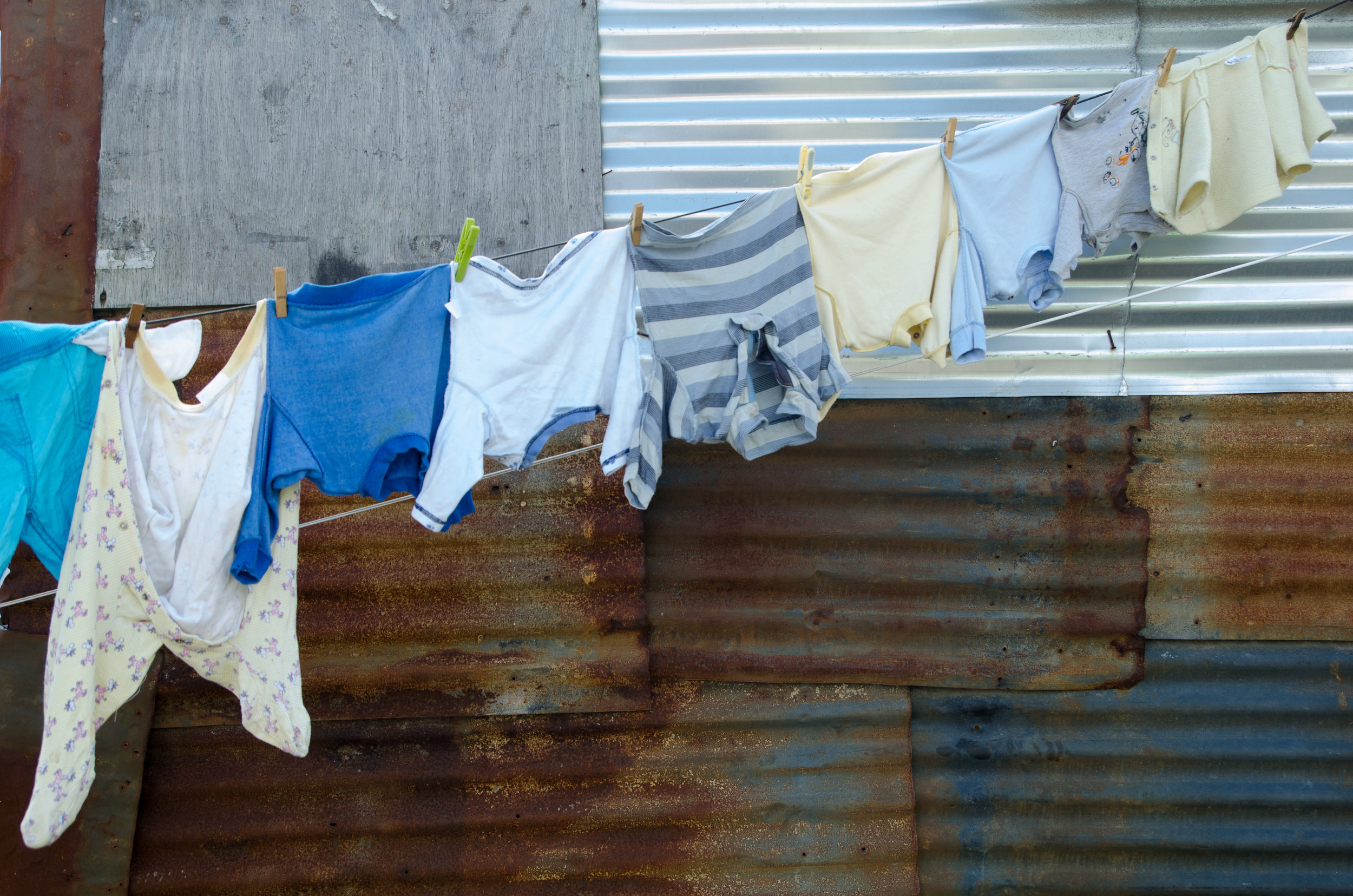
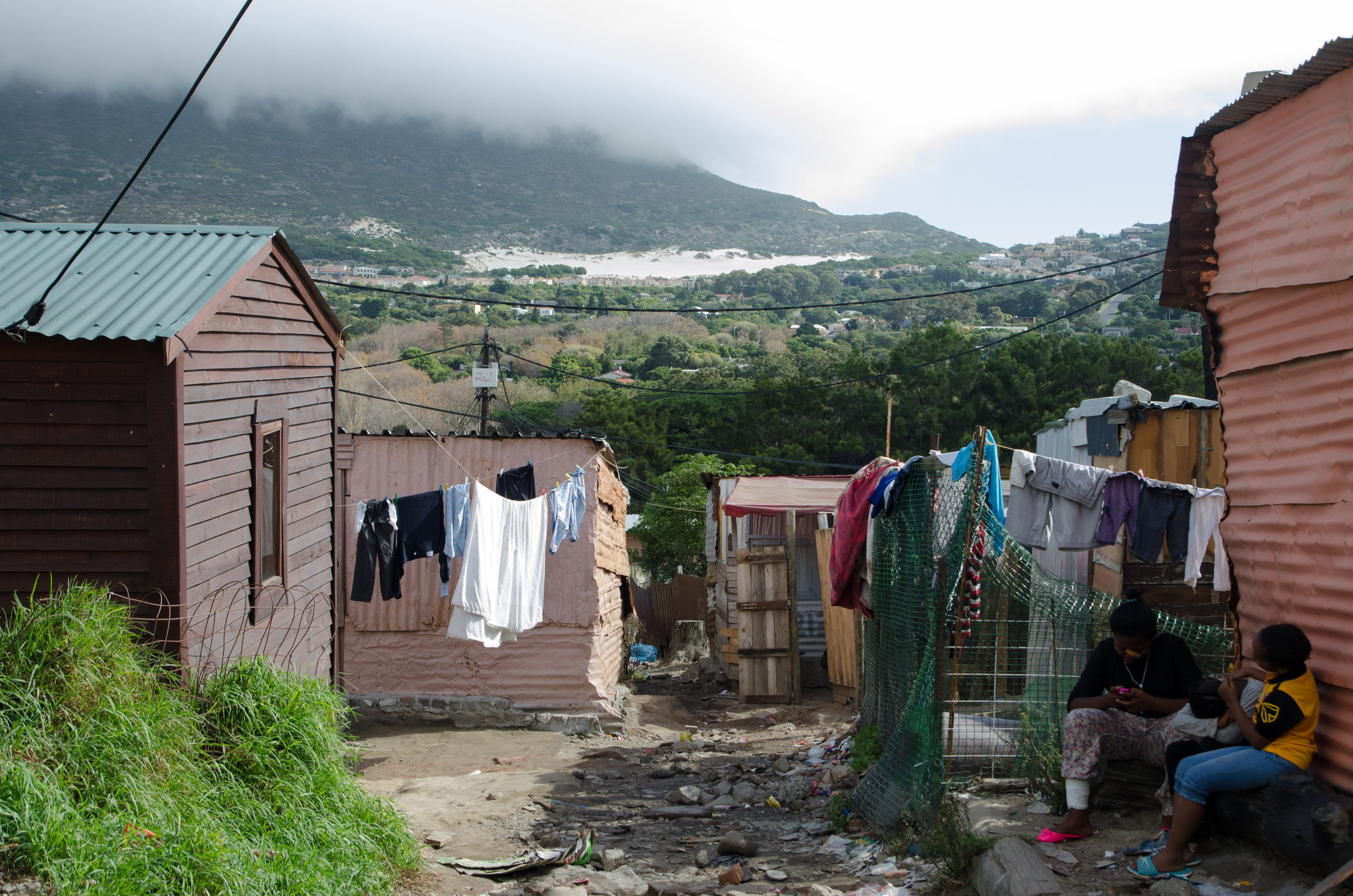


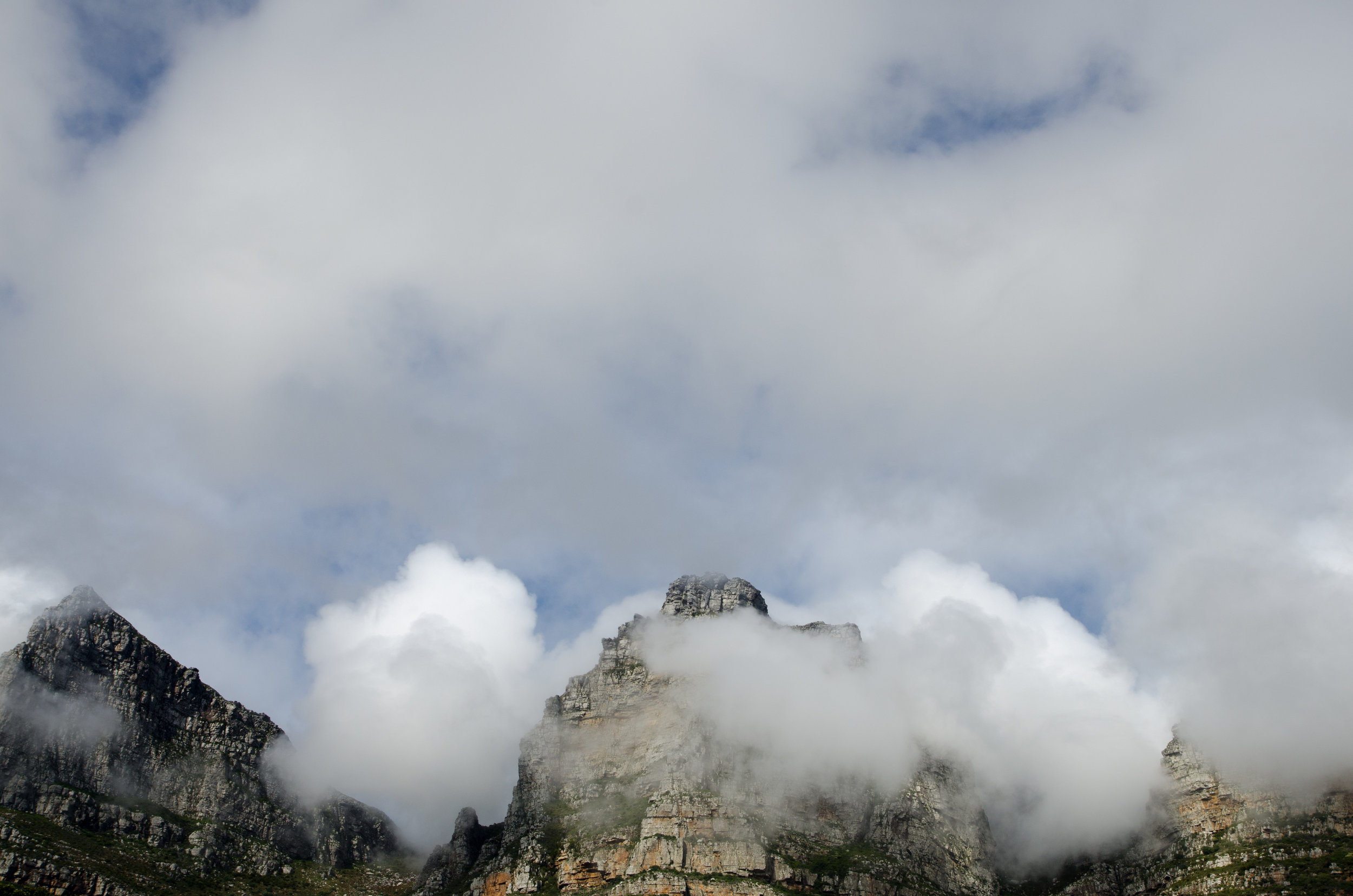
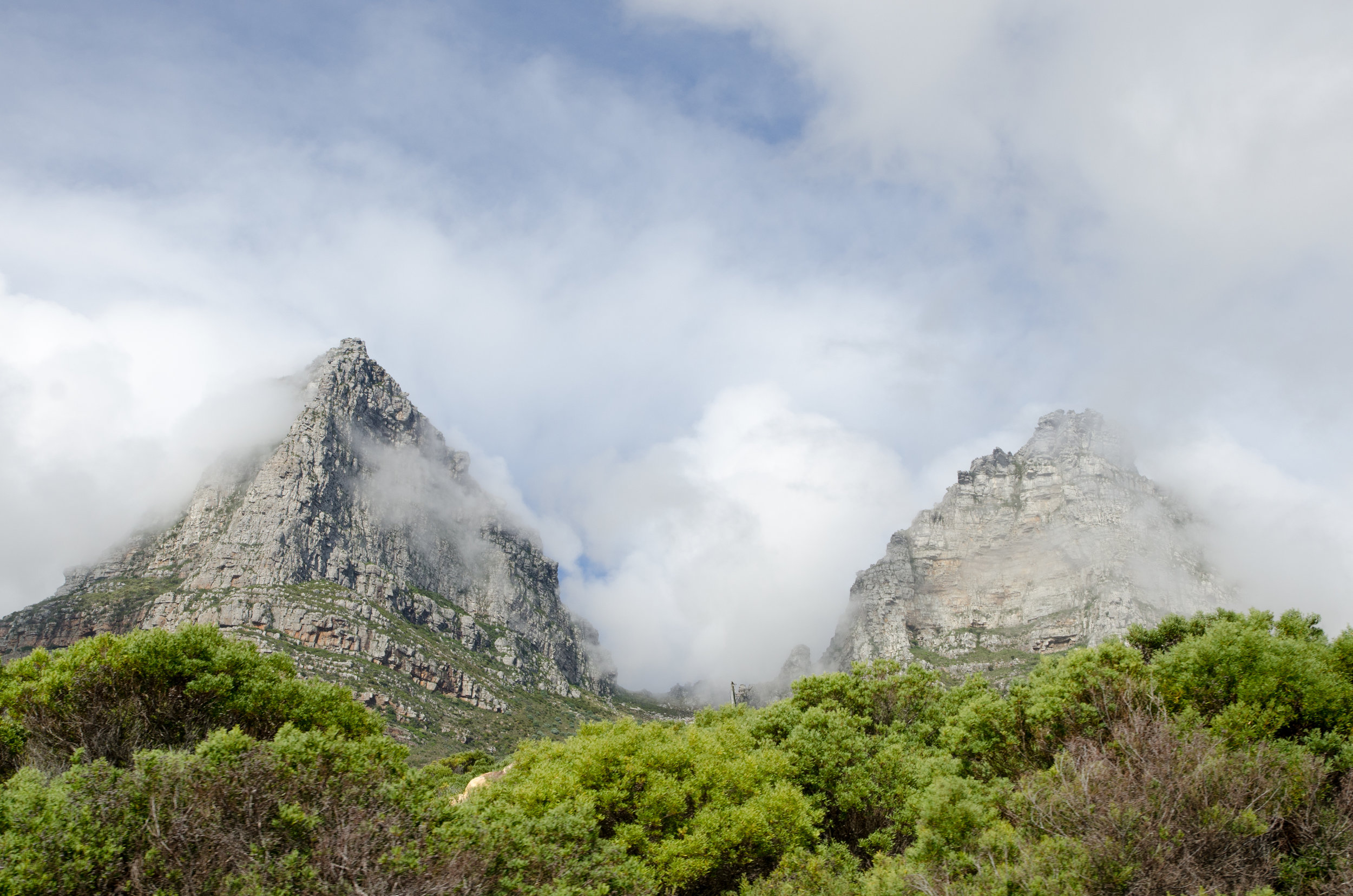

Green Market Square wasn’t my favorite market in the world. It felt pretty touristy, but it was a pretty day and I loved looking at all of the masks at this one stall. The vendor was nice to talk to, but I bit my tongue instead of telling him his masks were ridiculously overpriced and how silly it would be to buy a mask from Zambia in South Africa. I’ll just wait until I go to Zambia…
Imizamo Yetho (meaning “our combined effort” in Xhosa) Township is right in the middle it seems of the upper class suburb of Hout Bay (where we stopped yesterday at the port). When we arrived, our guide immediately pointed out where the upper class lived and told us that no white person lived in the township. It was established in the early 90’s where authorities allowed shacks to be built. Because the black residents could not afford to buy houses in Hout Bay, the only choice was to build these houses in the Township. When I point blankly asked our guide if that was strange- that there was no mixing, she shrugged and said it was just how things were done. The question of “Is it strange?” isn’t one that is necessarily asked. My eyes were wide and she laughed, nodding her head “yes” when I asked if many people ask the same question.
We learned that many of the people who live in the township either drive mini-vans (shared taxis) or work as domestic servants. The weekly wage for a domestic servant is the equivalent of $50.00. That’s right. $10.00 a day. I shook my head in disbelief. She said that it’s not enough money to do anything other than eat, and for the men: drink. a lot. over the weekends. Many women have more children so they can receive additional government stipends (per child) but this is a rather small amount, and even our guide shook her head at the disconnect.
Obviously there is a lot more to this situation, but how a country can get away with such a small minimum wage for certain fields that only seem to employ one race is beyond me. I asked what the township thinks about tourists walking through, if it was frowned upon. Our guide assured us visitors are welcomed. The township receives the entrance fee. Jobs are provided to its residents. And most importantly, our guide insisted, it creates awareness to those outside of South Africa which she hoped would help facilitate change.
Slum Tourism is disputed. (Read more about it here) I get it. We’ve been on a slum tour in Mumbai. I’ve photographed slums in South Korea. We’ll probably see more throughout the rest of our travels. It’s not easy to see. It’s not easy to share, but I think it’s necessary. With this trip, and this blog, I wanted to point out that tourism and travel is not always rainbows and unicorns. It’s an unbelievable experience. I’ve learned more about myself and my partner and our relationship than I could have ever imagined. Cape Town is beautiful, South Africa is a wonderful country, but it is not without conflict and parts that aren’t as pretty. And before you get your panties in a twist- I’m not saying that my country is any better. Because, it’s not. I know that. But I’m here now, and I’m not a big fan of inequality on any level.
We stopped in this little convenient store, our guide knew these boys and their mother. She wanted to say hello. She told me that they loved their picture being taken and sure enough, after I would take a picture, this little man in front would giggle with absolute glee seeing his photo on the LCD screen. We continued on, and I should have slowed our guide down a bit. I was having a hard time juggling photos and video at the same time. When we are in impoverished areas, we tend to only use one camera as a small attempt to not be THOSE American tourists, you know what I mean?
We were told “The Irish” built these houses for the first inhabitants of the Township. Now they are worth a crazy amount of money (I forget the exact amount now) but we were aghast at the idea of anyone else being able to buy the house and wondering why WOULD they buy it when they could live outside of the Township for so much less. We walked around the outside of the township back down to the road. I asked how often people leave the Township. Our guide told us that people simply didn’t leave the township. We waited for the bus watching a soccer game across the street. Their uniforms looked professional and the field looked immaculate. Our guide told us the field was sponsored by the government and the uniforms were sponsored buy businesses- townships played other townships. I didn’t understand the disconnect between the beautiful lawn and the set of three toilets we passed within the Township that did not use running water and looked worse than any kind of toilet I had seen throughout this trip.
The government can sponsor a field, but not toilets? Again, I know there are a lot of missing gaps for me as a visitor, but I wondered how many white South Africans have been through a Township. What would they think? Would they be ashamed of what they saw? When we went through the Apartheid Museum, it was noted that during the 1960’s, one white South African woman saw a “Free Mandela” sign painted on the side of a building. She was so naive that she thought a ‘Mandela’ was a type of food. I wonder if there is similar naivety today.
Back on the bus, we drove past unbelievably nice houses built into the sea-side cliffs. Personal funiculars for each house so residents didn’t have to walk up flights and flights of stairs to get home. Beautiful pristine windows overlooking the ocean. Whitewashed walls. Nice cars parked in private spaces. It was a bit mind-blowing after walking through the township.
Oh right, and then Andrew got mad at me for letting our pamphlet blow away (by accident of course).
The weather had turned a bit (as is often warned it does in South Africa) and clouds started rolling in, covering Table Mountain and the ‘Twelve Apostles’ as we made our way back to our hostel for one last night in Cape Town.
